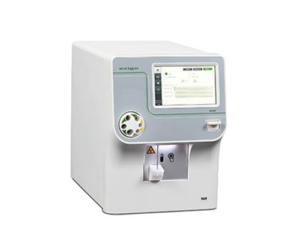Quality of life evaluation in dogs on chemotherapy treatment for lymphoma
Lymphoma is frequently diagnosed in dogs, and chemotherapy is the mainstay of treatment. However, many dog owners are concerned about side effects of the treatment. Researchers in Macedonia have evaluated the quality of life in dogs before, during, and after chemotherapy.
Canine lymphoma
Lymphoma is a common form of cancer in dogs. The condition affects the lymphoid cells of either B-cell or T-cell type. In addition to lymphoid-rich organs such as the lymph nodes, bone marrow, and spleen, non-lymphoid sites such as the liver can also be affected (1). The disorder is typically treated with, and highly responsive to, chemotherapy. A complete remission is commonly obtained in most cases (2).

Quality of life assessment
Elena Atanaskova Petrov and coworkers at the University Ss. Cyril and Methodius, Skopje, Macedonia analyzed the health-related wellbeing of dogs diagnosed with lymphoma previous, during, and at the end of the chemotherapy (3). Of 15 dogs diagnosed with multicentric lymphoma, five dogs received chemotherapy and were monitored in the three treatment phases. The five study subjects, three golden retrievers, one cocker spaniel, and one mixed breed of a median age of diagnosis of 8.4 years, were all classified as clinical stage 3 or 4, according to WHO.
Whole blood samples were collected by vein puncture, and complete cell counts were performed using the Exigo veterinary hematology analyzer. A common condition in the dogs before treatment was a mild non-regenerative anemia. During therapy, a significant increase in red blood cells, hematocrit, and hemoglobin levels was observed. Significant improvements in liver enzymes (ALT, AST) and protein status (total protein and globulin) were also observed. Owners also noticed improved appetite and desire to walk and play during the treatment. Complete remission was obtained in three patients, while partial remission was obtained in two. Median survival time was 13.4 months (between 4 and 24 months). At end of the therapy, the dog owners reported being satisfied with their decision for the treatment.

Learn more
Learn more about the clinical utility of the Exigo automated veterinary hematology system
References
- Bennett et al. Review of Canine Lymphoma Treated with Chemotherapy—Outcomes and Prognostic Factors. Vet Sci 10, 342 (2023).
- Zandvliet, M. Canine lymphoma: a review. Vet Q 36, 76–104 (2016).
- Atanaskova Petrov et al. Evaluation of health related quality of life in dogs treated with chemotherapy for lymphoma. Acta Veterinaria-Beograd 73, 218-230 (2023).
